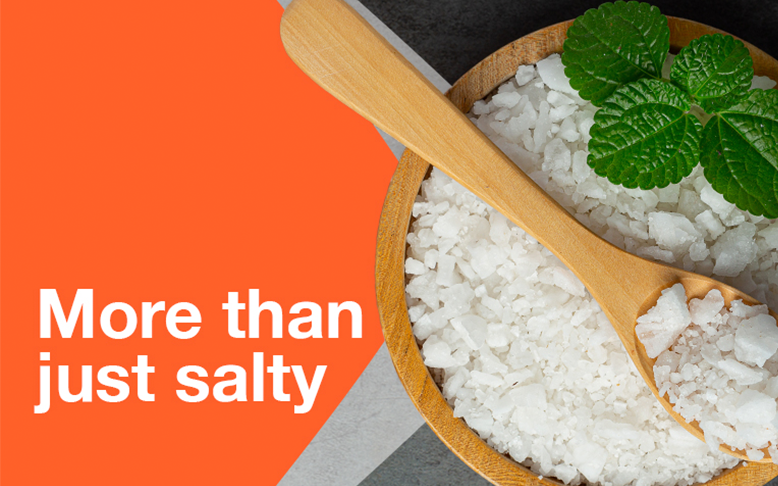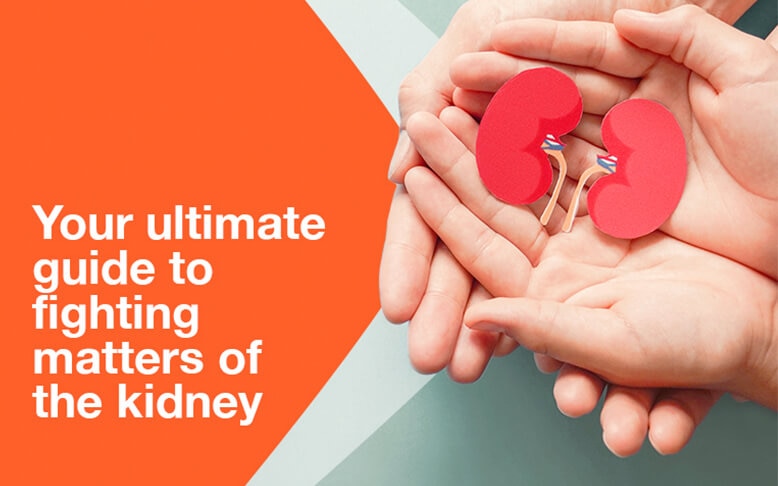A public health concern?
- Studies have shown that a diet high in sodium or low in potassium is linked with a higher risk for elevated blood pressure and hypertension1.
- Elevated blood pressure and hypertension are, in turn, major preventable risk factors for cardiovascular diseases, especially coronary heart disease, stroke and heart failure, as well as renal failure2.

Why do we need potassium?
- Potassium is an essential nutrient which may be found within all living cells of the human body.
- Primarily, potassium functions to regulate water and mineral balance3.
- It also plays an important role in electrolyte regulation, nerve signaling, muscle contraction and the tone of blood vessels4.
How much potassium is recommended?
- Daily requirements for potassium can be affected by climate and physical activity, the use of diuretics, and the intake of other electrolytes, notably sodium4.
- In adults, depending on age, gender and country, usual recommendations for daily potassium intakes range between 2,000 and 4,700 mg.
- The World Health Organization (WHO) currently suggests a potassium intake of at least 3,510 mg per day in adults; whereas in children, this amount needs to be adjusted downward based on the energy requirements of children relative to those of adults5. Based on Philippine Dietary Reference Intakes, the recommended nutrient intake of potassium per day for 3-5 years old is 1,400mg/day, 6-9 years old is 1,600mg/day and adults is 2,000mg/day.

How much potassium do we consume?
- Global data suggest that, in many countries, actual potassium consumption is below current recommendations.
- In countries spread across North America, Europe, Asia and Oceania, the mean potassium intakes range between 1,700 mg (China) and 3,700 mg (Northern Europe) per day6.
- In the Philippines, the mean average usual intake of potassium among 6-9 years old is 783mg/day, among 10-12 years old is 954mg/day, among 19-49 years old is 1,271mg/day and among 50 years and above is 1,155mg/day7-8.
What are potassium-rich food sources?
- Potassium is commonly found in a variety of foods, especially fruits and vegetables, such as leafy green vegetables, tomatoes, cucumbers, eggplants, squash and root vegetables, like potatoes.
- Potassium is also moderately abundant in beans and peas, tree fruits such as apples, oranges and bananas, as well as milk, yoghurts and meats.

Does potassium impact blood pressure?
- Consistent evidence from a large number of supplementation studies and meta-analyses of these studies indicates that increased potassium intake leads to a decreased blood pressure in both children and adults9-10.
- Potassium can also mitigate the negative effects of elevated sodium consumption on blood pressure at least partially through increased renal excretion of sodium11-12.
- Specifically, in hypertensive people not taking medication for their condition, recent evidence has shown that the reduction in blood pressure following potassium supplementation is not only influenced by the potassium dose, but also by the hypertensive status of the subjects, as well as the sodium-to-potassium ratio of their diet13
Does potassium impact cardiovascular disease risk?
- First of all, there is a well-established relationship between elevated blood pressure and increasing risk of cardiovascular diseases14.
- Moreover, several large cohort studies have found an inverse association between potassium intake and risk of stroke15.

Benefits beyond blood pressure?
- Potassium may protect against stroke and other cardiovascular diseases by mechanisms, which are in fact not only related to blood pressure16.
- Increasing potassium intake may have other beneficial effects, such as lower urinary calcium excretion, hence reducing the risk of kidney stones and contributing to prevent bone demineralisation17.
- Emerging evidence also suggests that potassium could be directly beneficial to the overall vasculature, hence contributing to support the healthy function of highly irrigated organs, such as the heart, the brain, and the kidneys18.
Can too much potassium be detrimental?
- In individuals without impaired kidney function, the body is able to efficiently adapt when consumption of potassium exceeds needs and to excrete excess amounts, mainly through urine4.
- Although in some situations, individuals may be more vulnerable to potential adverse effects of potassium (e.g., strenuous activities leading to dehydration, diabetes mellitus, impaired kidney function, drug treatment or other conditions affecting potassium balance), moderate increase in dietary potassium intake to reach recommended levels (e.g., WHO) is considered safe in general for a healthy population19.

Potassium in the context of the overall diet?
- Increased intake of potassium-rich foods (especially fruits, vegetables, and dairy products including milk) is necessary to reach the current recommendations.
- Potassium-rich foods also include many other nutrients that may be beneficial for cardiovascular health, as best illustrated by studies that have assessed the effects of overall dietary pattern such as the DASH (Dietary Approaches to Stop Hypertension) diet20.
Overall consideration of the evidence?
- Increasing potassium intake is likely to be broadly beneficial to populations around the world given the high prevalence of hypertension in adults globally (about 40% in adults aged 25 and over), the relatively low potassium intake in most populations (well below recommendations) and the clear benefit of increased potassium intake in individuals with high blood pressure.
- Moreover, WHO considers that a public health intervention aimed at increasing potassium intake from food could be a cost-effective strategy to reduce the disease burden of noncommunicable diseases including cardiovascular diseases5.



 Nestlé
Nestlé














No comments here yet.